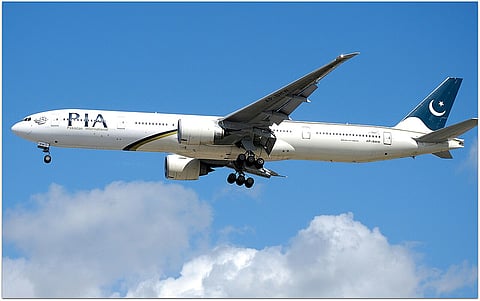

India has issued a comprehensive and blanket ban that prohibits all Pakistani-registered flights, along with those Pakistani-owned and operated or leased from Pakistan, from traveling through its airspace.
This step is a sharp intensification of the already tense standoff between the two nations in light of the recent attack that occurred in Pahalgam.
The Notice to Airmen (NOTAM), which is valid from April 30 to May 23, 2025, expressly forbids the entry of commercial and military aircraft originating from Pakistan.
Carriers such as Pakistan International Airlines (PIA) are directly compelled by this ban to reroute their flights through other avenues, i.e., via China and Sri Lanka, which automatically causes significant delays in their operations as well as an increase in operating costs.
The move follows days after Pakistan unilaterally closed its airspace to Indian flights alongside a range of other diplomatic measures it took against India folowing India's suspension of the Indus Water Treaty.
Pakistan issued a stark warning on Wednesday, claiming it possesses "credible intelligence" that India is preparing to launch an attack on the country within days. The government vowed to retaliate "very strongly" if provoked.
The crisis snowballed out of hand after India accused Pakistan of backing the Pahalgam attack—something that Islamabad denies thoroughly. The tensions stand at their riskiest level since 2019 when a suicide attack on Kashmir brought the nuclear neighbors to the brink of conflict.
With soldiers on maximum combat readiness, sporadic firing has erupted on the Line of Control (LoC) and the international border. Meanwhile, thousands of Pakistani citizens residing in India are dashing to exit following Indian authorities' advice to vacate—a move that was viewed as a precursor to potential military action.
The international community, the United Nations, and powerful nations have called for restraint, but with less confidence in each other at record, the risk of accidental escalation weighs heavily. Experts fear one misstep—a misfired airstrike, a clash at the border—could spiral into a full-blown conflict with catastrophic implications for the region.